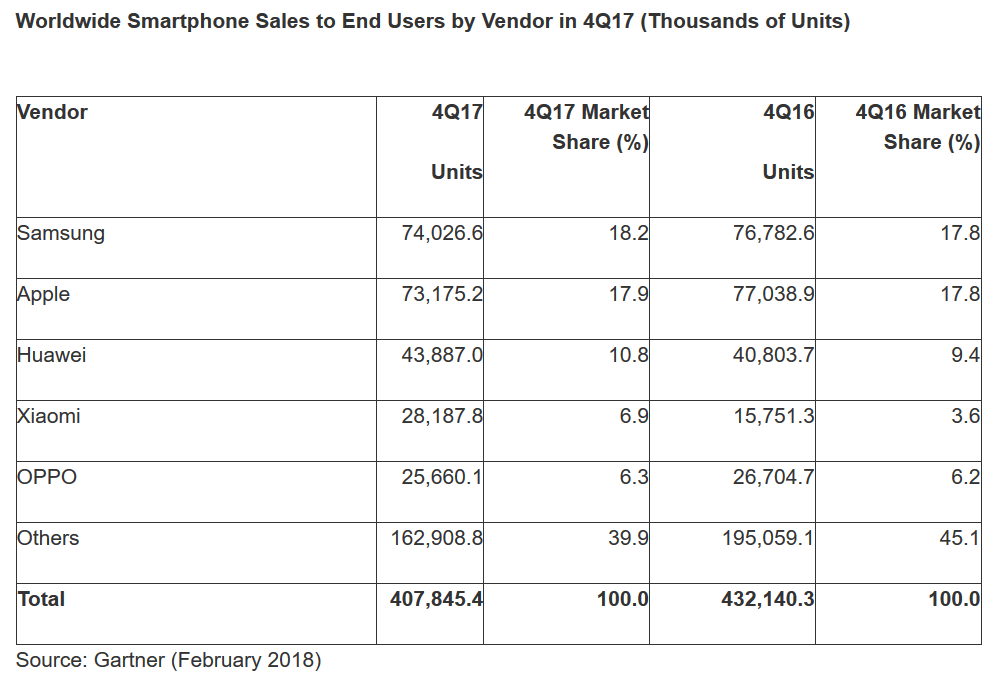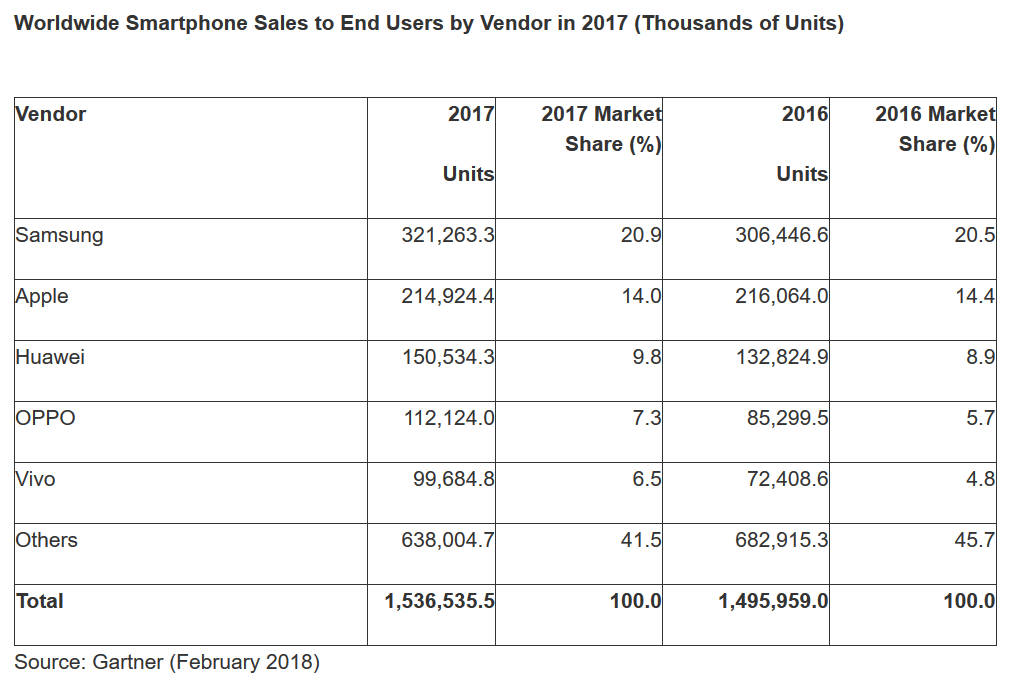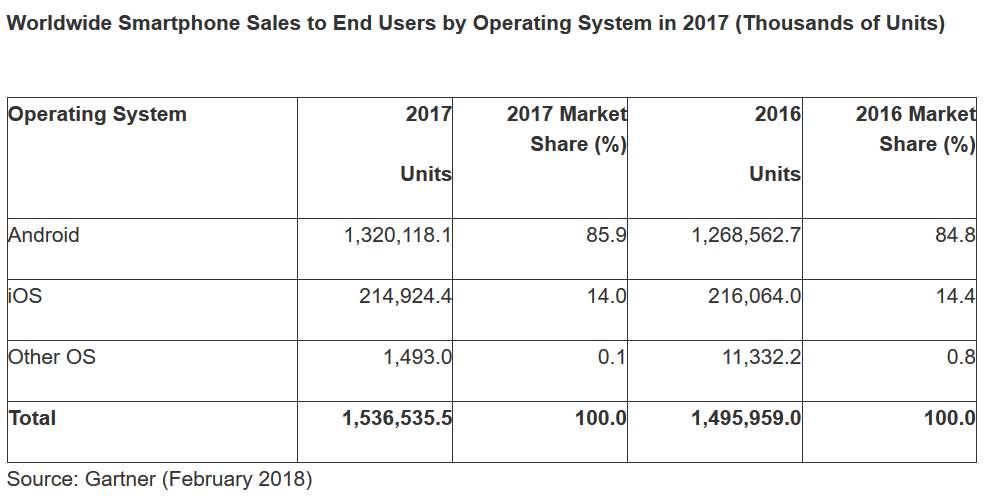While smartphone sales have been stagnant for several years, Gartner has never reported a year-on-year decline since it began tracking them in 2004---until now. The analyst firm reports that total global handset sales stood at around 408 million units in Q4 2017, a YoY decline of 5.6 percent.
While Samsung remained on top of the list with just over 74 million units sold, it saw a fall of 3.6 percent compared to Q4 2016. Apple, meanwhile, saw its iPhone sales drop 5 percent from 77 million to 73 million. Out of the top five, only Chinese giants Huawei (7.6 percent) and Xiaomi (79 percent) recorded yearly increases.

Gartner blames two factors on the decrease: The lack of quality "ultra-low-cost" smartphones has meant a slowing of upgrades from feature phones to smartphones; and phone owners buying replacement flagship models are keeping them for much longer.
While Samsung's sales are falling, Gartner believes the Galaxy S9 handsets, which are set to be unveiled at MWC, are likely to improve the company's bottom line.
"Although Samsung's significant sales volumes lean toward mid-price and entry-level models, which now face extreme competition and reducing contribution, its profit, and average selling price may further improve if these next flagship smartphones are successful," Gartner said.

While it remains comfortably in its number two spot, sales figures for Apple's iPhone X will likely have disappointed the Cupertino company. Low demand has reportedly led to Apple cutting production of its flagship in half, leaving OLED supplier Samsung searching for new buyers. But Gartner says iPhone X sales will see a boom this quarter.
It's not all bad news, though. Gartner adds that total phone sales for the entirety of 2017 exceeded 1.5 billion units---a 2.7 percent increase compared to 2016. Android, meanwhile, cemented its position as the most popular OS, with its market share increasing 1.1 percent to 85.9 percent.

